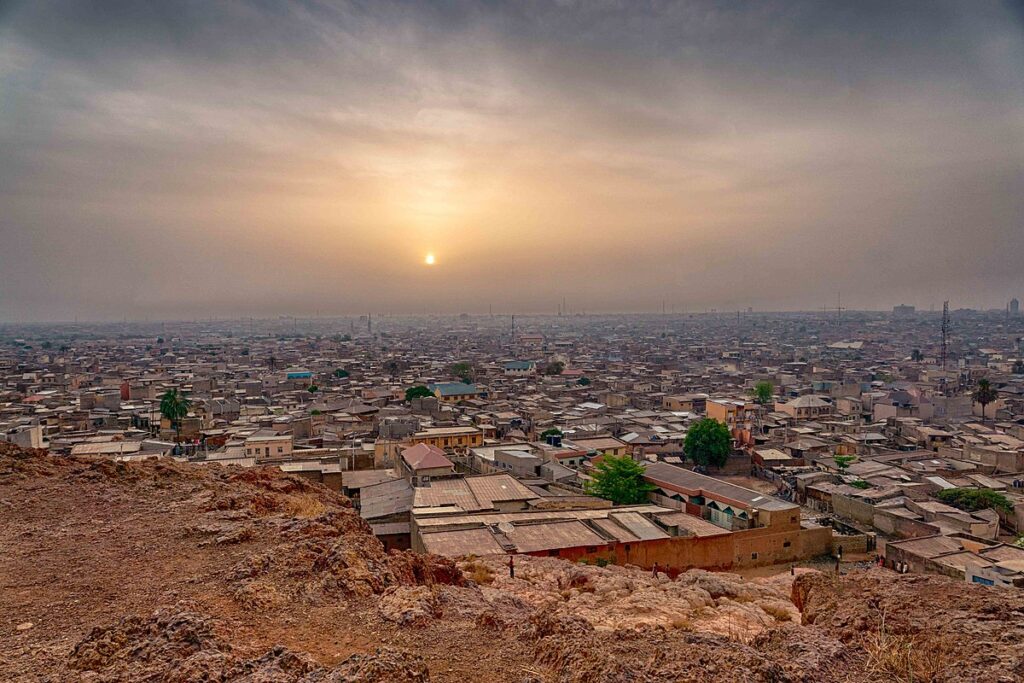Mubarak has been taken to a prison in Kano to await trial with many other prisoners.
Days turned to weeks, weeks to months, months to years. I never thought this would happen, but I started to become mentally institutionalised.
You have to understand that prisons in northern Nigeria are not prisons at all – they are slave centres, both mentally and physically. The main prisons in the ancient Hausa city states, even before the Fulani Jihadi conquests, were always located just by the palaces of the kings. They were part of a centuries-old system which the British found when they arrived and which has never been reformed.
So they are not modern prisons. They are torture centres where prisoners are flogged to the point of losing consciousness. There is violence and threats of violence, and many prisoners are children from poor families – whether guilty of an offence or not – who have no idea what human rights and human dignity are, and who have no conception of which punishments are deserved and which are not.
The wardens, who are mostly descendants of the palace guards of old, behave exactly as their ancestors did many years ago. It is not possible to mention here many of the atrocities they commit, but they happen. To give just a minor example, prisoners are not allowed to stand in the presence of anyone in authority. They have to kneel, bow or squat. I chose to sit on the floor rather than kneel. Prisoners have to obey any order they receive, and strange behaviour becomes normalised. The prison is quite simply a world of its own right in the middle of a city and no one has ever cried foul. I, however, intend to address all this as soon as I acquire the authority to do so.
My very first protest about all this proved to be a mistake. In mid-August I wrote to the head of the prison because I had been told that I would appear in court within two weeks and the time had passed without any progress being made. Meanwhile I had seen other prisoners being taken to court. So I started a hunger strike and threatened to reveal my identity to the other prisoners. I hoped in this way to rattle the authorities!
Before 6 am the following morning, the wardens surrounded the special cells and we were taken out and paraded. The other prisoners had no idea what was going on but I did. It was a search, not for drugs, but for books, papers, pens and other writing materials. I was asked how I had obtained access to the pen and paper I had used when writing to the prison head. I said I had taken them from the mosque – which was not true. Normally, if a prisoner was found with a pen they would probably lose their bed in a cell and have to sleep among 300 other prisoners. Books were banned along with writing materials except for those used for spiritual purposes – the Bible and the Qur’an.
Following the searches I was taken to the “in-charge” who asked what was wrong with me. Didn’t I know that they were hiding me from the people outside the prison walls who were looking to murder me. The whole world (he meant northern Nigerian Muslims) wanted to kill me and the actions taken by the government were merely intended to keep me safe. When I asked why I had not been taken to a prison in the south of the country he became very angry.
The ”in-charge” added that my plan to reveal my identity to the other inmates meant that I didn’t respect their methods. Revealing my identity would cause a prison riot, and for that I would be punished. One option was to put me in an isolation cell where my legs would be pegged to the bare clay ground like a goat. People in that situation had been known to freeze overnight and die from hypothermia – which according to the prevailing opinion was “demon possession”.
Another suggestion was that I should be put in one of the larger cells, but the “in-charge” knew that either the conditions there would kill me or I would be murdered by another prisoner. So it was no solution at all. Many other options were proposed, and the fact was that I was at their mercy. Of course, all of this would simply be punishment – and no punishment had been ordered by any court.
On this occasion I was let go with a warning, but my privileges were suspended. This meant no toothbrush, sugar or tea bags, and no soap or detergent. These were all privileges which I had been granted because of my status. Also, I was not allowed to contact either my family or to access legal services. I clearly understood that I was there simply to be punished.
By Mubarak Bala
Writing from Europe


